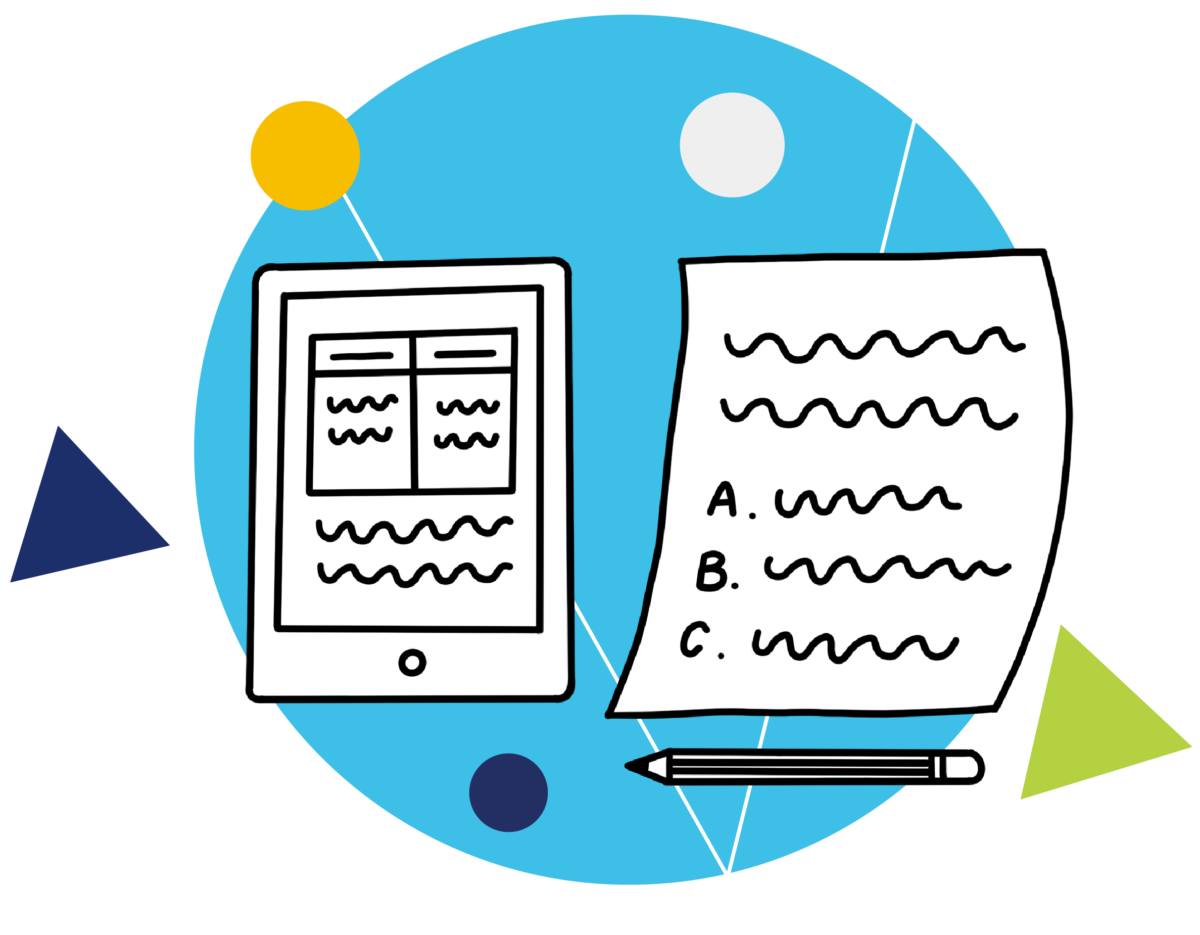DUI (Driving Under Influence) clinical evaluation also known as Alcohol/ Drug Clinical Evaluation begins with a scheduled one-on-one session between the person charged with DUI and the state approved SAP(Substance Abuse Professional). When an individual is charged with DUI, careless/reckless driving by the state, judge, attorney, or probation office, he/she has to get their clinical evaluation done for DUI before or after court proceedings. DUI evaluations is state-regulated. However, it is suggested to get the clinical evaluation done prior to your appearance in the court to show your good faith and accountability.
Evaluation is a one-hour session which has to be booked by the violater priorly with the clinical evaluator. Our professional will verify your exposure to substance abuse for different drugs while ensuring the confidentiality of the session. After the completion of the session our authorized clinician determines whether you need any sort of education, counseling, program or treatment. The final recommendation is explained to you before being handed over to you in writing. If he suggests some treatment program then, any violation in terms of attendance and other procedure during the course of the program will lead to a further violation on your part.
Our clinical evaluators are highly experienced and well knowledgeable to help you sort out your difficulties and set you on the right track. You can fix your appointment to let them guide you towards the right course of action. The majority of the offenders are afraid of the fact that they will be directed towards the treatment program however, it is not so. Each individual is analysed by our professional considering their history, evaluation of their link with drug and alcohol abuse with proper use of available professional assessment tools and then only, we arrive on giving the accurate and fair recommendations for each case.
Author: AACS SEO
When do you need a Substance abuse professional in your life?
A sap substance abuse professional is an advocate for neither the employer nor the worker. Their recommendations protect the general public safety if the worker returns to the performance of safety-sensitive functions.
- A DOT recognized drug abuse Professional must be one among the following:
- A licensed physician (Doctor of drugs or Osteopathy)
- A licensed or certified caseworker
- A licensed or certified psychologist
- A licensed or certified employee assistance professional
- An alcohol and substance abuse counsellor **
This program includes information on the nine required content areas designated in DOT Section 281(c) of Part 40. Content areas include a summary of the DOT drug and alcohol testing program, the drug and alcohol testing rules, and key DOT drug testing requirements.
WHAT DOES An SAP DOT?
The SAP’s fundamental responsibility is to supply a comprehensive face-to-face assessment and clinical evaluation to determine the level of assistance the worker needs to resolve problems related to alcohol use or prohibited drug use. The SAP then recommends a course of education and/or treatment with which the worker must demonstrate successful compliance before returning to DOT safety-sensitive duty.
Treatment recommendations can include but aren’t limited to In-patient treatment, partial in-patient treatment, out-patient treatment, education schemes, and aftercare. Education recommendations can include but aren’t limited to bona find drug and alcohol education courses, self-help groups, and community lectures. Upon determining the simplest recommendation for assistance, the SAP will function as a referral source to help the employee enter a suitable program.
Before the employee’s return to safety-sensitive duties, the SAP will have a face-to-face follow-up evaluation with the worker to work out if the individual has demonstrated successful compliance with recommendations of the initial evaluation.
This evaluation must be accomplished before an employer can consider the worker for return to safety-sensitive functions. Therefore, the evaluation serves to supply the employer with assurance that the worker has made appropriate clinical progress sufficient to return to duty.
What are DOT Assessments? Why are they important?
DOT Assessments are drug test regulated by the govt – specifically, the Department of Transportation (DOT).
In 1991, the U.S. Congress passed the Omnibus Transportation Employee Testing Act once they recognized the necessity for a drug and alcohol-free transportation industry. The Act required DOT agencies to implement drug and alcohol testing of safety-sensitive employees to take care of the security of the travelling public and workers.
The DOT’s drug screening rules and procedures are listed within Title 49 of the Code of Federal Regulations (CFR) Part 40, commonly referred to as “Part 40.” An office publishes these rules within the DOT: The Office of Drug & Alcohol Policy & Compliance (ODAPC).
DOT agencies and, therefore, the U.S. Coast Guard write industry-specific regulations that specify who is subject to testing, when, and in what situations. The transportation industry drug and alcohol testing program may be a critical element of the Department of Transportation’s safety mission.
Working closely with the industry, we have, over time, seen the number of crashes and accidents linked to drug and alcohol use by safety-sensitive employees decline. Still, human risk factors remain, so there is much work to be done, and that we cannot rest until we have eliminated the damaging risk posed by illegal drug use and alcohol misuse within the transportation industries we oversee.
Safety is our highest priority, and that we are committed to making sure that transportation employees are drug and alcohol-free. Employers should confirm that employees understand the private and professional consequences of failing to comply, and supervisors must be trained to spot the signs of drug use and alcohol misuse.
Employers must even have strong drug and alcohol testing programs, and employees must be far away from safety-sensitive duties immediately if they need to violate drug and alcohol testing rules. Employees must not be returned to safety-sensitive duties until they need been referred for evaluation and have successfully complied with treatment recommendations.
Advantages of Online SAP Evaluation Georgia
Substance abuse is a serious problem that is prevailing in the society. People find it an easy way to deal with stress and depression. But in long run, this can have serious adverse affects on physical and mental health. The substance abuse professionals play vital role in providing treatment and guidance in recovery from addiction. They evaluate the situation and recommend various solutions through their friendly and informative sessions. Online SAP evaluation is trending nowadays as it saves your time and hassles of going to the center. Let’s check out some of the advantages of virtual SAP evaluation:
- The best thing about online evaluation is the 24 hours of treatment availability. There are many platforms where patients can get services online. Addicted person may feel the temptation and craving for substance abuse at any time. An online counseling program that is available round the clock may be useful in getting the right guidance at right time. Online SAP evaluation is effective in suppressing some side effects on time.
- You can keep your identity as anonymous. If you are uncomfortable in revealing the identity, then you can undergo online SAP evaluation. Most of the people who are facing the problem of addiction may undergo treatment and have the advantage of counseling without going to the center physically.
- These counseling programs are flexible. You can select the session according to your own schedule. So if you have classes or a job, then also attending these sessions won’t be difficult. You can connect through mobile, laptop or desktop. The Tele-health virtual evaluations are gaining popularity nowadays and if done through verified professionals, the report can be considered in court as well.
- Online Tele-therapy session can be one-on-one or in groups. You can select the setting according to your need. Isn’t it amazing that you can get online SAP evaluation for effective treatment by sitting at home!
Virtual Alcohol and Drug Evaluation
Have you been suffering from alcohol or drug abuse? Do you need professional help to diagnose and treat the symptoms of addition? If yes, then substance abuse professionals are there to help you. In case you have a busy schedule or don’t want to take risk of transportation during COVID-19 pandemic, then you may also opt for virtual alcohol and drug evaluation.
- The Tele-health DUI evaluations are considered approved in the court, if performed by verified professionals. If you are worker who has violated the rules and regulations set by the US Department of Transportation, then you may undergo virtual alcohol and drug evaluation to get a green signal for returning back to duty.
You have to become a part of the program where proper education, treatment and follow-up plan is offered to the patient by the evaluators. These online face-to-face evaluations enable the patients to recover from this addiction without facing many difficulties. The substance abuse professionals also take the contact numbers of the family members and friends to ensure the recovery phase is smooth.
- Free online alcohol and drug tests are also available nowadays. These are created for general assessment and do not take place of in-clinic face-to-face sessions with the SAP. It is basically an assessment that a person can give to determine the current position.
In this assessment, some questions are asked from the person. The duration of this assessment is only 5 minutes. After completion of this assessment, the person gets general feedback. Remember that you must be honest while giving the answers because they are meant to analyse your behavioral pattern, thoughts and actions.
When everything is going digital, the above mentioned are some of the ways in which substance abuse professionals are providing help online. If you need virtual alcohol and drug evaluation, then you may contact American Alternative Court Services for more help.
Role of SAP for DOT in Recovery from Addiction
Addiction is bad! It is harmful for any individual and the society. A person who is addicted to drugs and alcohol needs to be treated and should not be allowed to work at any place. Is that an easy task? No, this recovery requires help from professionals known as Substance Abuse Professional. Let’s understand the role of SAP for DOT:
- Build therapeutic alliance with patients
For best treatment it is necessary for the counselors to create a bond with the patients. SAP has to show interest in the patient’s case. A good Substance abuse counselor stays attentive during the sessions and tries to understand the main problem behind the addiction.
- Keeps the patient motivated throughout the treatment
Leaving the consumption of alcohol or drug is entirely in the hands of the patient. Bringing change in the behaviour requires a lot of patience, encouragement and motivation. SAP for DOT ensures that the person is treated with warmth, empathy and friendliness. They try to understand the behavioral pattern and prescribe some methods according to that.
- Avoid situation of relapse
It is possible that the patient again starts taking drugs or alcohol after showing a bit of improvement during the treatment. SAPs make a proper plan to prevent such situation. It has to be taken care of from the very early stages of recovery. What can be done to make certain that the patient says ‘no’ to such temptations? To deal with this, SAPs analyse the history of relapses, list out the warning signs and ways to tackle them, take help from support network and recommend some changes in lifestyle.
If you are looking for an expert SAP for DOT, then you can contact American Alternative Court Services. Our programs are designed to provide you a new perspective towards living a healthy life.
Alcohol and Drug Evaluation: Things to consider before choosing the service
It is important to choose a reliable service alcohol and drug evaluation Marietta for court. This assessment is required by the court to solve various cases. There are certain points that the person must consider before availing the service:
- Credentials of the professional
You must check the experience and qualification of the evaluator. Experienced professionals know the right way to treat the person. They don’t unnecessarily over-diagnose or over-treat the person. Check whether the evaluator has a license and there is no disciplinary action against the substance abuse professional.
- Unique report
Make sure that the evaluator provides a unique and properly filled report including the severity of addiction and the treatment plan. SAP who only fills out a preformatted evaluation form is considered quite unprofessional by the court.
- Check report before the court
Ask whether it is possible to review the report before forwarding it to the court. It is an important document that determines the future, so it should be reviewed to avoid any error.
- Need of drug test
Drug test is done through a urine screen. It is an important part of alcohol and drug evaluation Marietta. In some cases this report is not essential but in some cases comments of evaluator are essential.
- Cost of assessment
You have to pay almost $200 for a basic alcohol test that can be considered as appropriate for the court. Make sure that you don’t compromise on quality of the report. The court can reject the evaluation if complete credentials and relevant information are missing in the report.
- Reviews about service
Research about the reviews received by the evaluator regarding the service offered. Always take your report from an authorized professional to avoid any issue in court.
Now that you have gone through all the points, making the right decision may not be very difficult for you. American Alternative Court Service is perfect place where you can get the alcohol and drug evaluation Georgia done with the help of experienced counselors.
WHAT TO EXPECT IN SAP EVALUATION-30067
In order to be precise, a drug addiction diagnosis is based upon a thorough analysis and assessment done by a licensed alcohol and drug counsellor. From blood to urine different types of lab tests are involved in this SAP evaluation to achieve the right extent of addiction. These tests that are used for monitoring the course of recovery, are used to build an effective treatment plan tailored to the individual needs of those suffering. By putting yourself in reliable hands of professionals, you’ll be given the best possible chance at recovery.
At AACS, you can start by discussing your substance use with our qualified doctors or ask for a referral to the specialists here in drug addiction department. Having examined thousands of clients for the test, our professionals carry the experience for a thorough assessment based upon facts and rational procedures. We put forward the independent perspective of someone you can trust and who knows you well.
When Is It Done?
Once you begin with your addiction treatment program, you may receive a substance abuse evaluation test to determine the extent of your substance use and form the accurate individualized care plan customized as per your needs and circumstances.
Since the treatment professionals need to know your history of addiction, to make it work, you have to:
- Be honest about your drug use.
- Make a list of all medications, vitamins, or supplements that you’re taking.
- Make a list of questions to ask your doctor or any other professional.
How It Works
A substance use evaluation is broken down into two stages that may be administered by professionals trained to assess addiction.
These steps can be defined as:
- Screening: Created to evaluate the presence of a particular problem, that will be determined with a simple yes or no.
- Assessment: Created for determining the nature of the patient’s problem, determining a diagnosis, and forming treatment recommendations for the problem or diagnosis.
So, If you believe that someone you love is suffering because of the substance use and requires an SAP evaluation, don’t hesitate to reach out to our professionals who can assist you in these tough times. Contact us today.
Procedure of Alcohol and Drug Evaluation
Alcohol and drug evaluation Marietta is a tool that is helpful in determining substance use and planning an effective treatment for the individual. This evaluation is necessary to ensure public safety. This process has lots of intricacies, so let’s have a look at the process in detail.
Purpose of Alcohol and Drug Evaluation
- To assess whether the person is addicted or not.
- To determine the level of addiction.
- To make a baseline for the treatment plan.
- To check the adverse effects of the substance abuse.
Two steps of Evaluation
Screening and assessment are two parts of the alcohol and drug evaluation Marietta. The screening part is done to check the presence of problem. Assessment is the detailed diagnosis of the problem that helps in starting the treatment. Counselor, therapist, physiologist, doctor, nurse or psychiatrists may be involved in the evaluation process.
Screening Tools
- Questionnaire: In this method some questions are asked to understand the condition and psychology of the person.
- Alcohol Use Inventory: This tool is helpful in recognizing the risks, results and lifestyle choices of a person.
- Substance Abuse Subtle Screening Inventory: It determines the history of the substance abuse, seriousness of the problems and the willingness of person to change the habit.
Assessment Tools
Diagnostic Interview Schedule: It is a questionnaire that is prepared to find out the presence of diagnosis.
Addiction Severity Index: It is an interview that helps in determining the drug and alcohol use, legal status, family or social status and medical status.
Role of the family or friends
The information from the people with first-hand knowledge is collected for making better treatment plan.
Court-Ordered Evaluation
The judge may ask for alcohol and drug evaluation of a person who is charged with:
- False ID
- Public intoxication
- Bad conduct
- Minor in possession
- Driving under influence
- Drug or alcohol possession
You can contact the American Alternative Court Services to get the best possible help related to alcohol and drug evaluation.
Facing SAP for DOT Evaluation – Preparation Tips
Substance abuse professional or SAP for DOT (Department of Transportation) is an authorized person who evaluates the situation, makes a treatment plan and ensures complete recovery of a drug or alcohol addict. A person cannot return to duty without successfully completing the treatment of addiction. If you are an employee who has been tested positive in a drug or alcohol test, then you have to the SAP. Below mentioned are some points that you can expect while facing the evaluation:
- SAP has tremendous experience in diagnosis and treatment. They are trained on Department of Transportation 49 CFR Part 40 and regulatory agencies. Initially they look at your case and try to gather details. You will be asked certain questions through assessment tools for gathering maximum information about you.
- Never feel scared. Take it as a therapy session. Give honest answers for all the questions as if you are talking to a friend.
- After this evaluation, SAP for DOT will chalk out a treatment plan so that you get fine and get back to work soon. It is essential that you take the treatment seriously and follow all the steps that are suggested by the substance abuse professional.
- Attend individual counseling and awareness classes to get good education about the adverse effects of drugs and alcohol. They also guide you with superb ways of living a healthy life.
- Remember you cannot do any safety-sensitive work without getting permission from the SAP. The substance abuse professional verifies whether the person has followed the treatment plan and maintained regular check up and follow ups. A report about this progress is then submitted to employer. It is difficult to get rid of a habit but with willingness to change, the return-to-duty process may become easy.
Employers find American Alternative Court Services very effective and reliable to get SAP for DOT for their employees. For more than 25 years, it has been doing great job by treating people suffering from various addictions.












